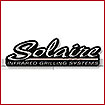----The Ultimate Customer Service Experience
--Companies That "Get It"
-- And Those That Don't
Brilliant
Branders & Wolf Criers: Five Companies Who Know the Importance
of the Ultimate Customer Experience (And Six More Who
Haven't Learned the Lesson)
By
Scott Deming, author of The Brand Who Cried Wolf: Deliver on Your
Company's Promise and Create Customers for Life (Wiley, April
2007, ISBN-10: 0-4701271-2-0, ISBN-13: 978-0-4701271-2-4, $24.95)
Hoboken,
NJ (August 2007)-Ever had a customer experience that
left you with a genuine sense of delight? On the other hand, have
you ever had an encounter with a company that left you gnashing
your teeth and griping about the event for weeks on end to anyone
who'd listen? If you're like most people, you can answer both
questions (especially the second one!) with a resounding yes.
But did you ever stop to wonder precisely what its was that went
so right-or in the second case, so terribly, horribly wrong?
Scott
Deming, author of The Brand Who Cried Wolf: Deliver on Your Company's
Promise and Create Customers for Life (Wiley, April 2007, ISBN-10:
0-4701271-2-0, ISBN-13: 978-0-4701271-2-4, $24.95), has the surprisingly
simple answer: Great customer experiences happen when companies
keep their word. Below, he's provided examples from both ends
of the spectrum: brilliant branders (who consistently create the
ultimate customer experience) and wolf criers (who claim they
do but actually don't).
The
Brilliant Branders: How they got it right
Businesses
fail for any number of reasons, but there is only one foolproof
way to build a truly successful one. Stumped? The key to business
success is to consistently deliver-or better still, overdeliver-on
your brand promises. That's exactly what the following five companies
do, day in and day out.
"These
companies know that even ahead of sales numbers and profits, the
most important part of your business is the relationships you
build with people-your customers and employees," says Scott
Deming. "It's that simple. Deliver on your promises to your
employees and they'll be sure to deliver on your company's promises
to your customers. The resulting ultimate customer experience
turns your customers into loyal, raving fans who will take your
company to the promised land."
1.
Saturn
Saturn, the little car company that could, has built its business
around a promise "to surprise and delight people in all aspects
of the automotive experience." The Saturn brand survives
because it delivers on this promise by providing hassle-free sales,
excellent service, and honest, down-to-earth transactions. It
tells consumers that it's "a different kind of car company,"
and it is.
As
evidence of that, one man shared his Saturn ultimate customer
experience in a 2005 BusinessWeek Online article by Diego Rodriguez.
The author reported that the man's daughter was left stranded
in Arizona after her Honda (yes, Honda) broke down. When it came
time to ask for help, the man called a Saturn customer-service
center. According to the article, in order to give the man an
excellent automotive experience as they promise in their brand
purpose, the customer service rep arranged for the Honda to be
towed and the young woman to be picked up. They then let her father
know that she was okay. The reason Saturn succeeds is not because
they make a better car than say, Honda, but because they overdeliver
on their brand promise. It's not the car, it's the car company.
2.
Ben & Jerry's
From its inception in 1978, Ben & Jerry's set out to create
a special customer experience and a socially-conscious company.
When their first store opened, the pair immediately went to work
building a relationship with the Burlington, VT community where
it was located. Their first summer there, they held a free movie
festival by projecting movies onto the outside wall of the store.
Throughout its existence, the company has been dedicated to creating
jobs for Vermonters. Ben & Jerry's seems to be built around
the idea that you can have a thriving business and still give
back to your customers, community, and employees. As the now multi-million
dollar company has grown, it has continued to strive to put out
the highest quality products while still being good citizens:
·
Rather than throwing away excess materials, they began feeding
a Stowe, VT, pig farm ice cream waste.
·
The founders spoke out against using Bovine Growth Hormone (BGH),
refusing to use milk from cows that were given the hormone.
·
The company has created unique (and delicious!) flavors that have
helped bring attention and funding to everything from rain forest
preservation, to disadvantaged people, to Farm Aid.
These
are only a few of the ways Ben & Jerry's gives back. Their
social and environmental identity is bound up with their product
and their brand; in fact, there's no distinction. This is what
makes the Ben & Jerry's experience unique.
3.
Costco
Through their excellent employee retention plan, Costco shows
that providing the ultimate customer experience starts with treating
your employees well. Costco is a general merchandise company that
sells high quality, low-cost items from mayonnaise, to automobile
tires, to crystal chandeliers. A crucial component of its success
is employee loyalty, which translates to employee evangelism.
In fact, Costco has the lowest employee turnover rate in retail.
The
average wage for a Costco employee is more than 40 percent higher
than its closest competitor, Sam's Club. And the company provides
excellent benefits, contributing to employee 401(k) plans after
two years and providing health insurance to part-time employees
after six months of employment. Employees say they want to work
at Costco until retirement-a rare expression of employee satisfaction.
Naturally, the effects of the company's approach to employees
ripple outward as Costco shoppers appreciate the fact that the
low prices they enjoy do not come at the expense of workers' wages
and benefits.
4.
Wegmans Food Markets
Wegmans Food Markets is another great company that constantly
overdelivers on its brand promise of "Every Day You Get Our
Best." Wegmans is a 70-store, family-owned supermarket chain
that focuses on giving its best to both customers and employees.
Citing the time last year when CEO Danny Wegman flew new, full-time
employees up to the company's Rochester, NY headquarters so that
he could meet them and welcome them to the company, Fortune named
Wegmans one of its 100 Best Companies to Work For in 2006.
Furthermore,
Wegmans doesn't only make its employees happy. It also makes the
communities where its stores are located happy. According to the
to the company's website in each of its store communities, Wegmans
tries to do the following: provide food for the needy, give donations
to neighborhood activities such as community festivals, help young
people become healthy, productive, and independent adults, and
support the United Way. All of these aspects combined ensure that
customers, employees, and the communities truly do get Wegmans
best everyday.
"And
perhaps the true sign of a great company, Wegmans knows a failed
strategy when they see one," says Deming. "The company
closed its 14-store Chase-Pitkin Home and Garden Centers in 2006
after their efforts to mimic the big players, such as Home Depot
and Lowe's, failed. Leaders at the company realized they would
have to invest a lot of money and resources to be competitive
in the market, and simply bowed out of the home and garden arena.
But they did it with class. Always concerned about its employees,
Chase-Pitkin employees were offered jobs in Wegmans stores if
they wanted them."
5.
Starbucks
Starbucks has grown to optimize the idea of creating a brand by
generating so-called correct perceptions. The Starbucks brand
is not entirely about coffee. The product only gets them in the
game. What makes the brand and keeps the customers coming back
are experiences and associations.
"The
Starbucks brand is the reason we're willing to stand in line way
too long and gladly pay way too much for a cup of coffee,"
says Deming. "We take our recyclable cup out of the store
and into our workplace. We show, through our purchase, how sophisticated
we are, how we know about the finer things in life. By associating
with the Starbucks brand, we associate with success."
The
Wolf Criers: Why they've missed the mark
It
should come as no surprise that any company that neglects its
customers is destined to be a consummate failure. That's why it's
so astonishing that so many organizations (even multi-million
dollar corporations!) are still trying to do business without
making their customers their number one priority. The companies
below were each failures in this department. Some misjudged the
quality of their customer service, some wanted to cut costs and
thought cutting customer service made the most sense, and some
simply made mistakes during critical times. There is a lesson
to be learned from each of them: failing to create the ultimate
customer experience for your customers will mean failure for your
company sooner or later.
1.
Time Warner
In 2006, Time Warner bought out Comcast Cable. A series of commercials
airing in Los Angeles, one of the cities affected by the change,
assured customers that the transition would be seamless; Comcast
customers wouldn't even realize their cable or Internet service
provider had changed. The implication was that service was terrific
to begin with and would continue to be so under Time Warner's
ownership and management. Unfortunately, this turned out to be
not entirely true for at least one customer in Southern California.
A simple wireless router issue turned into eight hours of phone
calls, at least three technician visits, unfulfilled promises
to return calls, and all around incompetence.
2.
Red Cross
A glaring and shocking example of how trust can be instantaneously
eroded comes from the American Red Cross. In the hours after terrorists
attacked the United States on 9/11, record-breaking pledges poured
in from around the world. The Red Cross set up The Liberty Fund
as a direct response to the attacks and collected more than $564
million. However, by November 2001, CNN and other news agencies
reported that only $154 million of that had been distributed.
Dr. Bernadine Healy, who was the outgoing Red Cross president
at the time, argued in defense of the charitable organization's
decision to set aside more than half of the money raised for future
needs, including possible terrorist attacks. This news angered
many donors. They felt like their money was not reaching the intended
recipients.
"In
other words, though donors were not critical of the charity having
money for future disasters, the real question was whether the
important agency misled donors into thinking donations were going
immediately to 9/11 relief," explains Deming. "I don't
think anyone really believes the Red Cross deceived people for
some selfish, greedy end. But in a moment when individuals' feelings
were of raw helplessness and despair, and the only way they had
to connect with and help others was through monetary donations,
the Red Cross failed to keep its brand trust."
3.
Sears
Sears was at one time the preeminent department store. There wasn't
a product they didn't carry, and all of them were backed by a
guarantee of quality. When you heard the name Sears, you knew
you could count on what you got. And, if something didn't work
the way it was supposed to, or stopped working altogether, Sears
was ready with a replacement or quality repair. Unfortunately,
that time seems to have passed, notes Deming.
"My
personal experience is a testament to the new Sears brand,"
he says. "Sears failed miserably as a brand. Not only did
it fail to deliver on its promise-the same promise it's made for
decades-it also failed to exceed my expectations with a unique
experience when I needed it most. The entire Sears brand, in my
mind, failed because of a single experience I had with one young
lady, a supposed customer service representative. She did everything
in her power to do the minimum so she could get off the phone
and go back to whatever she was doing. The experience soured me
on Sears, and I no longer trusted the Sears brand."
4.
Song Airlines
Facing competition from low-cost carriers Jet Blue and Southwest,
and still reeling from 9/11, Delta spun off Song Airlines in April
2003. The airline took its final flight in April 2006. Its demise
came when it based its marketing efforts around reaching a well-researched
core customer, the "discount diva," an upwardly mobile,
professional woman between the ages of thirty-five and fifty-four.
The new airline boasted terrific in-flight entertainment systems,
offered organic meals, and comfortable leather seats. The problem?
Song's core customer was not a real person; it was a marketing
Frankenstein, an amalgamation of market research, so delivering
on its brand promise was a challenge.
"The
airline had built its brand around this core customer, and it
just wasn't sufficient to keep the airline aloft," says Deming.
"Since there was no reality to its "a core customer,"
there could be no reality to the brand. The lesson to be learned
from Song: Market research will never yield the elements of an
excellent brand.
5.
Dell
Recently in its bid to cut costs in a competitive market, Dell
cut funding in an area that was once one of its biggest strengths,
customer service. Naturally, it didn't take long for complaints
about poor service to start streaming in. In May, those customer
complaints turned into more than just a customer service nightmare,
when the New York Attorney General's Office filed a lawsuit against
Dell and Dell Financial Services for false advertising, failure
to provide services, and deceptive business practices.
Proving
just how important meeting your brand promises are, Attorney General
Andrew Cuomo released these scathing remarks: "At Dell, customer
service means no service at all. Dell's consumers were intentionally
misled, and they had to pay for that privilege. I hope this lawsuit
sends a message to companies large and small that delivering a
product is simply not enough - the promises they make must be
delivered as well."
"Attorney
General Cuomo is exactly right and if Dell wants to get its customers
and good reputation back, they'll have to return their focus to
creating the ultimate customer experience, not saving money,"
Deming declares.
6.
Sprint Nextel
Most businesses want their customers to stay with them for the
long haul and will do anything possible to make sure they stay
happy. Sprint Nextel has a different approach. In late June, the
company, which MSN Money "honored" in April by placing
the company in its Customer Service Hall of Shame in April, sent
a letter out to 1,000 of its customers telling them that "the
number of inquiries you have made to us...has led us to determine
that we are unable to meet your current wireless needs."
They gave the axed customers a month to find a new wireless provider
before terminating their contracts. "It seems the company
was upset with the number of calls these customers were making
to customer service reps," says Deming. "It should be
obvious this isn't the way to treat customers, no matter how high
maintenance they are. My suggestion would be that Sprint Nextel
take a look at why their customer service departments weren't
able to successfully handle customer issues and attack the problem
at the source-not just throw their hands up and abandon their
customers to the telecommunication wilds."
The
Ultimate Customer Experience: Eight (Surprisingly Simple) Ways
To Wow Your Customers-and Keep Them Coming Back.
In
today's business world it takes more than flashy advertisements
and proclamations that you're the best to reach the top. In his
new book, Scott Deming says successful companies do something
radical: they keep their promises.
Hoboken,
NJ (August 2007)-Today's world is filled with savvy consumers.
They know how to find the best deals. They're up on all the latest
trends. If there's a hot new product on the market, they don't
want to miss it. (Remember, those iPhone lines!). Their remarkable
blend of exuberance and skepticism leaves many business owners
wondering, How can I keep my customers' attention no matter what
product or service my competitor is putting on the market? Marketing
and advertising expert, Scott Deming, says he has the answer:
it takes more than great products to keep your customers coming
back. You must create the ultimate customer experience.
"What
does the ultimate customer experience look like?" asks Deming,
author of the new book The Brand Who Cried Wolf: Deliver on Your
Company's Promise and Create Customers for Life (Wiley, April
2007, ISBN-10: 0-4701271-2-0, ISBN-13: 978-0-4701271-2-4, $24.95).
"Maybe it's an individual making a personal connection with
a customer on behalf of the business. Perhaps it's an employee
going out of his way to make sure a customer has everything she
needs and is more than satisfied with the transaction. Essentially,
it's keeping your promise-whether that promise is implied or stated
outright.
"All
companies make promises to their customers," he adds. "They
wouldn't be in business if they didn't. But not all companies
keep their word. The ones that do will naturally set themselves
apart from the competition. By providing the ultimate customer
experience, you make people loyal to your brand. And brand loyalty
is everything."
You
can't develop brand loyalty through creative advertising, or by
developing a brilliant logo, color scheme, or theme song. It comes
from doing for customers what you say you are going to do. It's
that simple. Brands that don't deliver on their promises lose
customers and generate catastrophic, negative word-of-mouth. But
brands that consistently exceed what they promise earn customers
for life and generate waves of new customers from positive word-of-mouth.
In
The Brand Who Cried Wolf, Deming explains how to create the
ultimate customer experience by involving the entire organization-including
sales, customer service, shipping, product design, marketing,
and so forth. Here are just a few of his insights:
Be
careful what you promise. Do you promise your customers
no waiting in line longer than five minutes and then keep them
tapping their feet for ten? Or do you promise 24-hour help service
only to make them hear a recorded message instead of a real person
on the other end of the line? If you can't or don't deliver on
your brand promises, you will fail to create loyalty among customers.
If you mess up with a customer once, he might give you another
chance, but it's likely that the next time he needs something,
he'll go to one of your competitors. In the reverse scenario,
when a company delivers on its promises and even exceeds expectations,
it makes the customer feel valued and appreciated. He feels as
if he is a part of your company's family and culture.
"It
is this delivery that amounts to the ultimate customer experience,"
says Deming. "In turn, the ultimate customer experience creates
just the sort of customers you want: ones who bring you more business.
You want them to feel married to your company. When you marry
someone, you expect that person to remain monogamous, and that's
the same feeling you want someone to have about your brand."
Separate
yourself from the pack. As mentioned above, when businesses
get mired in sales quotas, short-term goals, statistics, and so
forth, the people inside those businesses become robotic. Their
eyes are focused not on how the brand is doing, but on what the
numbers tell them. Both you and your employees should actually
be focused on exceeding your customers' expectations. You can
start by getting rid of impersonal customer service techniques,
such as email or automated telephone services. When it comes to
your customers, always be proactive.
"You
must consider what you can do to differentiate your business from
all the others that offer the same services or products,"
says Deming. "The differentiator must be the level of service,
the unique experience you offer each of your customers. You have
to engender loyalty in customers so that they will go out of their
way to shop with you, regardless of how far out of their way they
have to go to get to you."
Realize
that perspective is everything. To really know how things
are going at your company, you'll have to step out of your own
shoes and take a walk in those of your customers and employees.
You need to look at your customers and say to yourself, If I were
one of my customers right now, what would I love to have from
me? Then, do it! Step Two in your "perspective walk"
will be taken in your employees' shoes. You'll need to gauge their
loyalty to the company because loyal employees provide the ultimate
experience for customers. When you see what work needs to be done,
get started immediately.
"When
you walk in your customers' and employees' shoes, you enlarge
yourself," says Deming. "Your perspective widens, and
so does your concern about what's important. The benefits you
receive from changing your perspective will far exceed those reaped
from a narrower focus that includes only the bottom line."
Face
the fact that you (and your brand!) are probably not as great
as you think they are. You may or may not be aware of
the Lake Wobegon Effect, but it is a phenomenon from which many
of us and our businesses suffer. It's the human tendency to think
we are better than we actually are. And in business, the effects
can be devastating. The problem is when you think your business
is the best, you don't work as hard to keep making it better.
"Always
be ready to evaluate your brand," says Deming. "Constantly
ask yourself how you can improve upon the experience you offer
your customers. Finally, focus not only on what's working, but
find aspects of your brand that are not succeeding and do everything
you can to improve them."
Understand
your company's "reach of influence." Everyone
in business is familiar with the adage that a happy customer tells
one friend about a good experience while an unhappy customer tells
ten of his friends about a bad experience. It's the customer experience
ripple effect, and you want to ensure that your business creates
only positive ripples. To do this, you need to focus on actions
that show you acknowledge and understand your customers' needs.
Doing this will help you create a brand whose promise creates
evangelists who are ready to sing your praises near and far.
"Avoiding
creating a negative, widespread ripple effect is easy," says
Deming. "Simply deliver on your brand promises and your customers
will never feel disappointed. Your brand promise is inextricably
tied to your reputation, and you want to make a big enough splash
that delivering on your promise ripples indefinitely!"
Don't
pretend to be something you're not. You are your brand,
and your brand is you! Everyone has a brand identity, but they
don't all understand their own brand correctly, or even know what
it is. Branding is not a matter of putting on a persona that others
will like. It's not playing a role, putting on a mask, or pretending-all
that is superficial, a veneer that covers up the "real"
you. You cannot develop an authentic, sincere brand-and the brand
evangelists that come with it-without understanding what you are
all about. You don't want your customers to feel like they are
being "sold" based on a false business persona.
"When
you are sincere about trying to understand your customers' needs,
desires, and what they'd truly love from you, a genuine connection
is made that is the foundation of trust between you and your customers,"
says Deming. "And customers who trust a business keep coming
back to that business over and over again."
Know
that the easy way isn't always best. Technology has made
communication so much easier. But if you're not careful, too much
of a reliance on technology can take your out of direct contact
with your customers and as a result erode your brand. Texting,
emailing, and instant messaging do not allow you an opportunity
to create emotional connections with your customers. Effective
use of technology should help you streamline your operations,
create new opportunities, reach a broader customer base, and reinforce
your carefully developed brand.
"Regardless
of whether or not your business is brick and mortar or Web-based,
remember to use technology to transcend, not replace, your brand,"
says Deming. "When considering technology in your business
or organization, ask yourself, 'If I were my customer, what would
be the ultimate customer experience for me?' I guarantee you,
you would not love endless phone trees, unreturned calls, or SPAM
email advertisements. Don't let technology be the end of your
brand; let it be the beginning of expanding, extending, and sustaining
it."
Don't
drive your customers to a flawed service. A common mistake
for many business owners is that they drive customers to a business
that does not already have a brand identity in place that welcomes
and encourages those customers. You can't figure out what your
service is after the fact. You can't put a message out that is
not reinforced and transcended by the brand experience. Appearance
without substance-advertising and driving people to your business,
without a powerful brand identity-leads to unsatisfied customers
and eventually failure.
"Here's
what businesses need to understand: your values and sincerity
are your brand, and any marketing or advertising efforts need
to be based around that brand identity," says Deming. "Your
brand can be created only by you and the relationships you develop."
"All
of these lessons work together to bring us to one critical conclusion:
if you want to be successful, you must build a powerful emotional
brand," says Deming. "You must stop looking at customers
with dollar signs in your eyes and start creating relationships
with them. This may seem like an expensive proposition, but believe
me, it's less expensive in the long run than neglecting customer
relationships. When your customers see that you truly value them
and care about the service you can provide them, you'll be able
to provide them with their ultimate customer experience and they'll
be customers for life. That's the real secret to long-term success."
About
the Author:
Scott Deming delivers high-energy sales, marketing, and customer
service presentations to clients across the globe over 100 times
a year. Before devoting himself to public speaking full-time,
Deming grew his own marketing and advertising company, RCI, into
a multimillion-dollar organization servicing Fortune 500 companies
and many other medium to large corporations across the country.
RCI received The Business Journal's "Most Inspiring Business
of the Year" before Scott sold it. His high-energy presentations
teach customer-focused sales, marketing, and branding techniques
to corporations like Verizon Wireless, Wells Fargo, 3M, USAA,
GlaxoSmithKline, Delta Faucets, John Deere, Prudential Real Estate,
Wachovia, Wyeth Consumer Healthcare, and many others. His programs
and unique presentations have appeared on television and radio
shows, in newspapers, and in regional and national magazines and
trade publications.
About
the Book:
The Brand Who Cried Wolf: Deliver on Your Company's Promise and
Create Customers for Life (Wiley, April 2007, ISBN-10: 0-4701271-2-0,
ISBN-13: 978-0-4701271-2-4, $24.95) is available at bookstores
nationwide, from major online booksellers, and direct from the
publisher by calling 800-225-5945. In Canada, call 800-567-4797.
|













































